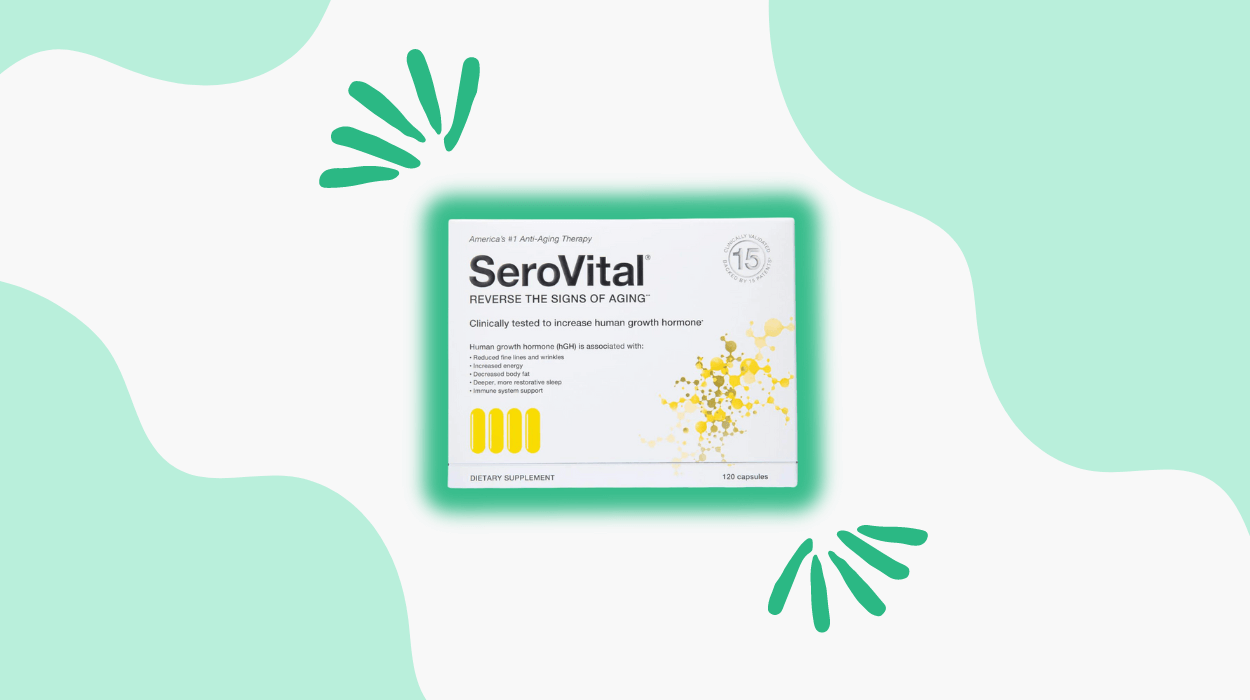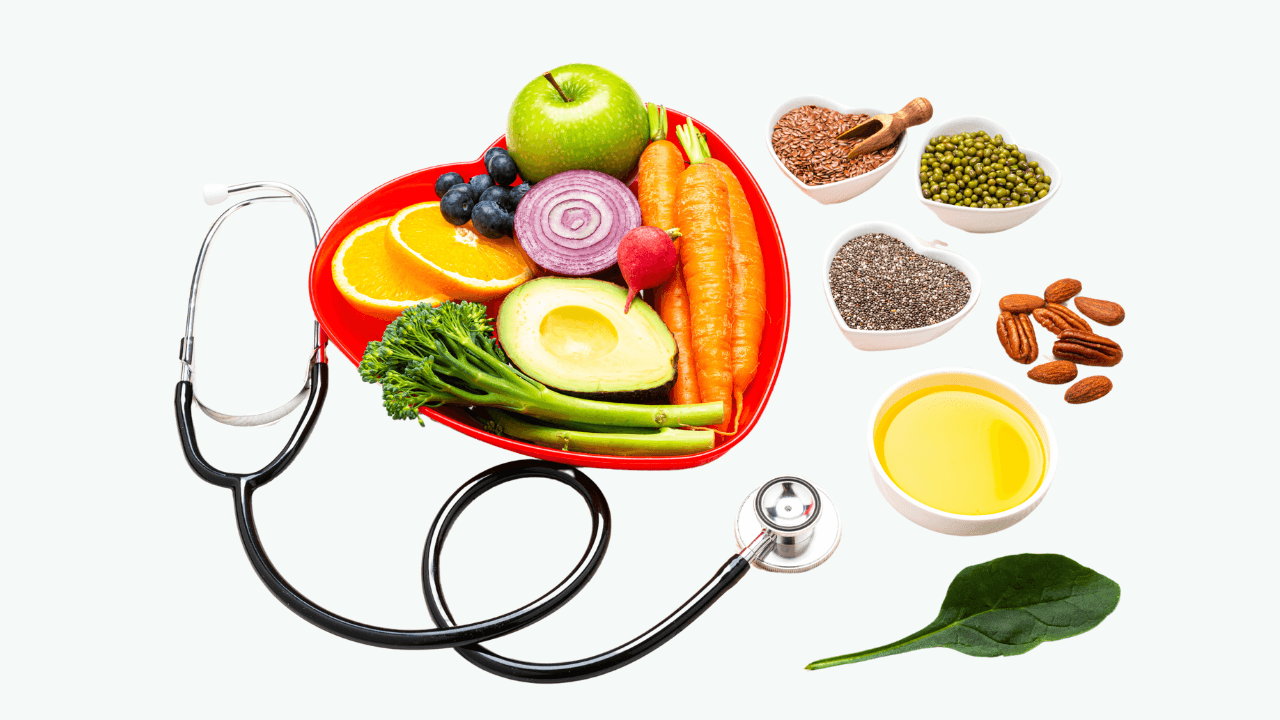

Diet is necessary for maintaining a healthy heart and supporting optimal cardiovascular function. You may often choose processed foods that are high in calories, as preparing healthy meals requires time.
However, your unhealthy food habits might cause a strain on your heart, potentially increasing the risk of other heart health issues like high cholesterol and high blood pressure.
Thus, knowing what is good for your heart and making proactive efforts so your body doesn’t lack vital nutrients is crucial. Try to include healthy fats, proteins, and foods that could promote heart health.
In this article, we have mentioned 20 foods for the heart to promote good heart health and also explained how they could improve other aspects of your health.

Asparagus contains a high amount of folate that may lower homocysteine levels in the blood. It also has vitamin C and beta-carotene, which may reduce inflammation, potentially contributing to overall heart health.
Asparagus is a low-calorie vegetable that is high in dietary fiber, which may help you manage weight and support your cholesterol levels. It possesses essential nutrients like vitamins C, A, and K, along with minerals such as potassium and iron, all of which may benefit heart health. Thus, if you increase the intake of potassium by including asparagus, it might help you maintain healthy blood pressure levels, which could possibly keep your heart rate in check.
Berries contain fiber, folate, iron, calcium, vitamin A, and vitamin C, along with high levels of polyphenols, which might reduce the risk of heart disease. They could also help lower levels of low-density lipoprotein (LDL) cholesterol. Berries may prevent the formation of plaques in arteries that may increase the chances of atherosclerosis and heart disease.
Broccoli contains sulforaphane, which has anti-inflammatory and heart-protective properties. It may help lower oxidative stress and inflammation in the cardiovascular system, promoting optimal heart support.
Broccoli could assist in lowering cholesterol levels and eliminate it from the body due to its high fiber content, which may potentially reduce the risk of heart disease. It contains vitamin C, beta-carotene, and flavonoids that could reduce free radicals and protect the heart from damage.
Fresh herbs like basil, cilantro, parsley, and rosemary are rich in antioxidants, minerals, and vitamins that may support your heart health by reducing inflammation.
Basil has a high level of vitamin K, which may help maintain heart health by assisting in proper blood clotting. Cilantro could help lower cholesterol levels and support healthy blood pressure with its high potassium content.
Parsley has vitamin C, an antioxidant that might protect your heart from damage done by free radicals. Rosemary, with its anti-inflammatory properties, may help improve circulation and support overall cardiovascular function.
Chia seeds and flaxseeds are plant-based sources rich in omega-3 fatty acids, specifically alpha-linolenic acid, which may positively support your heart health. Omega-3 fatty acids in chia seeds could reduce triglyceride levels, LDL cholesterol, and overall cholesterol levels. They may also lower your blood pressure and hinder the accumulation of fatty deposits in the arteries, promoting clear arterial pathways and reducing the risk of heart-related complications.
Dark chocolate may prevent the stiffness of arteries and the sticking of white blood cells to blood vessel walls, which could lead to atherosclerosis. It is rich in antioxidants, which may reduce oxidative stress and inflammation, potentially supporting overall heart health.
Flavanols in dark chocolate might stimulate the lining of arteries, called the endothelium, to produce nitric oxide. Nitric oxide may help relax and dilate blood vessels, increasing blood circulation and reducing blood pressure, which is beneficial for heart health.
Research suggests that catechins in green tea might reduce cholesterol levels, particularly LDL cholesterol, which could contribute to heart disease. Green tea could help prevent cell damage and reduce inflammation, contributing to improved cardiovascular health. It may also improve blood vessel function, enhance the body’s ability to control blood pressure and reduce the formation of blood clots. These effects of green tea might reduce the risk of heart attacks and strokes.
The magnesium content in black beans could assist in reducing blood pressure levels, reducing the risk of hypertension, and promoting cardiovascular health. Black beans contain fiber, which may help control cholesterol levels, specifically by reducing LDL cholesterol, which is beneficial for heart health.
They have a low glycemic index and are rich in fiber, which might potentially help manage diabetes and reduce heart problems associated with high blood sugar. The antioxidants found in black beans could potentially reduce oxidative stress and inflammation, which might lower the chances of heart disease.
Studies have shown that coffee intake may help manage the chances of developing heart failure and stroke. Coffee is a beverage consumed globally and is known for its stimulating properties because of the presence of caffeine. Beyond its energizing properties, coffee contains antioxidants and other bioactive compounds like cafestol and polyphenol that could contribute to its potential protective effects on heart health.
Almonds, hazelnuts, peanuts, pecans, pistachios, and walnuts may provide heart-healthy benefits due to their rich nutritional profile. They contain high levels of unsaturated fats, like omega-3 and omega-6 fatty acids, which could reduce bad cholesterol levels and the chances of heart disease.
Nuts contain vitamin E and selenium, which might help fight inflammation and oxidative stress in the body, promoting heart health. They contain a high amount of fiber, which could assist in lowering cholesterol levels and improving heart health by regulating blood sugar and promoting a healthy gut microbiome. Nuts are also loaded with essential nutrients such as magnesium, potassium, and vitamin B, which might help maintain heart health and overall health.
Salmon, mackerel, and sardines contain a good amount of omega-3 fatty acids that are called EPA and DHA. These essential fatty acids may help maintain heart health by reducing inflammation, lowering triglyceride levels, and improving overall cardiovascular function.
Fish is a good source of omega-3s and high-quality protein. Protein may help in the construction and restoration of tissues, including heart muscles.
Studies have shown that people who consume fish on a regular basis often have a reduced risk of heart disease. The omega-3 fatty acids present in fish could potentially prevent irregular heartbeats, decrease the growth of arterial plaque, and lower blood pressure, all of which contribute to a healthier heart.
Spinach contains magnesium that may help maintain heart health. It could also help regulate heart rhythm and support proper muscle function, including the heart muscle.
Spinach is packed with antioxidants like vitamins A and C, which might help reduce inflammation and oxidative stress in the body. It could benefit your heart health by protecting your blood vessels from damage and reducing the risk of heart disease.
Spinach is a low-calorie food that is high in vitamins K and E, potassium, and folate. These nutrients may support overall heart function and contribute to a healthy cardiovascular system.
The liver, known as the nutrient-dense among organ meats, is rich in folic acid, iron, chromium, copper, and zinc, which may boost the blood’s hemoglobin levels and support heart health.
Its folic acid content might assist in the growth of red blood cells, and zinc might help transport oxygen in the blood. The B vitamins present in organ meats might provide a potential cardioprotective effect that may help promote heart health and possibly protect against heart diseases.
Research has suggested that the antioxidants in red wine could promote healing, prevent blood clotting, and reduce inflammation. Resveratrol in red wine may prevent damage to the cardiovascular system by neutralizing free oxygen and reactive nitrogen species, thereby reducing oxidative stress.
Oatmeal comprises beta-glucans, a form of soluble fiber that may help lower LDL cholesterol levels, which is beneficial for heart health. It could also assist in cholesterol reduction and help regulate blood sugar levels, which might prevent conditions like diabetes that can impact heart health.
Oatmeal is a low-sodium food that could help sustain optimal blood pressure levels and reduce the possibility of heart disease and stroke. It is a filling food that might help control appetite and promote weight management, which can possibly help manage overall heart health.
Swiss chard is abundant in vitamin A, an antioxidant that could help protect the heart from oxidative stress and inflammation. It contains lutein and zeaxanthin, which might possess anti-inflammatory effects and assist in shielding against chronic illnesses.
Swiss chard may support heart health and reduce the possibility of cardiovascular diseases with the help of its potassium and magnesium content. It is packed with heart-healthy fiber, which might assist in lowering levels of cholesterol and enhancing cardiac performance.
Tomatoes are a nutrient-rich fruit that possesses fiber, potassium, vitamin C, folate, and choline. Potassium is found abundantly in tomatoes, which may benefit the heart while also assisting in the prevention of kidney stones. The fiber in tomatoes could help reduce cholesterol levels, promote digestive health, and support healthy weight management.
The presence of vitamin C, folate, and choline in tomatoes could provide antioxidant protection and cardiovascular support. Thus, including tomatoes in your diet may help you prioritize your heart function naturally.
Barley is a whole grain that can be used as a substitute for rice or added to soups and stews. The fiber content in barley, especially B-glucan, could help decrease cholesterol levels and stabilize blood sugar levels. Barley may promote healthy digestion and regular bowel movements, which could indirectly support heart health by reducing the overall burden on the cardiovascular system.
Tofu is a soy-based protein source that offers heart-healthy minerals, fiber, and polyunsaturated fats when included in a balanced diet. It also possesses essential minerals like iron, calcium, and magnesium.
Tofu’s high fiber content may assist in digestion and could help lower cholesterol levels, reducing the risk of heart disease. The polyunsaturated fats present in tofu, such as omega-3 and omega-6 fatty acids, might have a positive effect on cardiovascular health.
Vegetables are low in calories and high in fiber, which could help with weight management and lower blood pressure levels. Fiber in vegetables may also assist in digestion and promote overall heart health.
Combining vegetables may provide you with essential vitamins like Vitamin C, Vitamin A, and potassium, which can help maintain heart function and overall health.
Vegetables rich in antioxidants, like broccoli, spinach, and carrots, could help reduce inflammation and oxidative stress in the body. Theta may help you fight off harmful free radicals and lower the chances of heart disease.
Leafy green vegetables are naturally low in unhealthy fats and sodium. Thus, including them in your diet might help you reduce the intake of harmful components, thus promoting better heart health.
Keeping your heart healthy is crucial for making sure your body gets the nutrients it needs and maintains a steady level of oxygen. That’s why it’s important to include such foods in your diet that are good for your heart so your body can work its best.
Making healthy food choices that are good sources of antioxidants and omega-3 fatty acids might help you reduce inflammation, maintain optimal blood pressure, and lower cholesterol levels.
However, there are also other ways to support your heart health naturally. Physical activities, such as walking, yoga, and jogging, may help strengthen your heart muscle and improve circulation.
Managing stress through meditation or deep breathing could help reduce the strain on your heart. Ensuring adequate sleep and avoiding smoking are vital for maintaining overall cardiovascular health.
You could improve your heart health to support the way to a longer, healthier life by including these heart-friendly foods and natural lifestyle practices in your routine.
Tyler Read earned an undergraduate academic degree from Sonoma State University, California and is a certified personal trainer (CPT) with NASM (National Academy of Sports Medicine). With over 16 years of experience, Tyler has trained clients both online and in-person.
He is passionate about helping others turn their love for fitness into a career. Tyler has worked with many local and commercial gyms before establishing his successful private personal training business, which he continues to operate.
